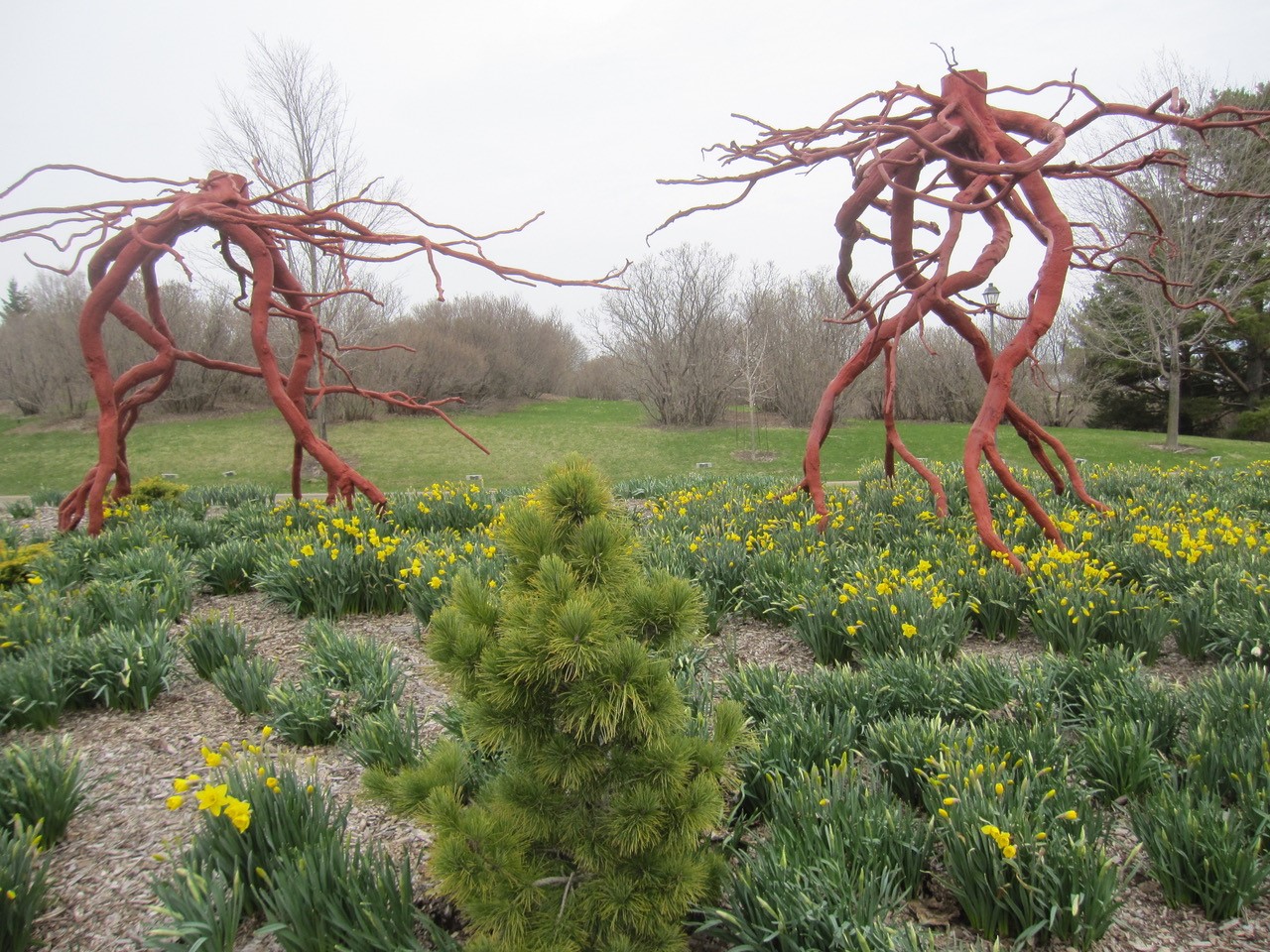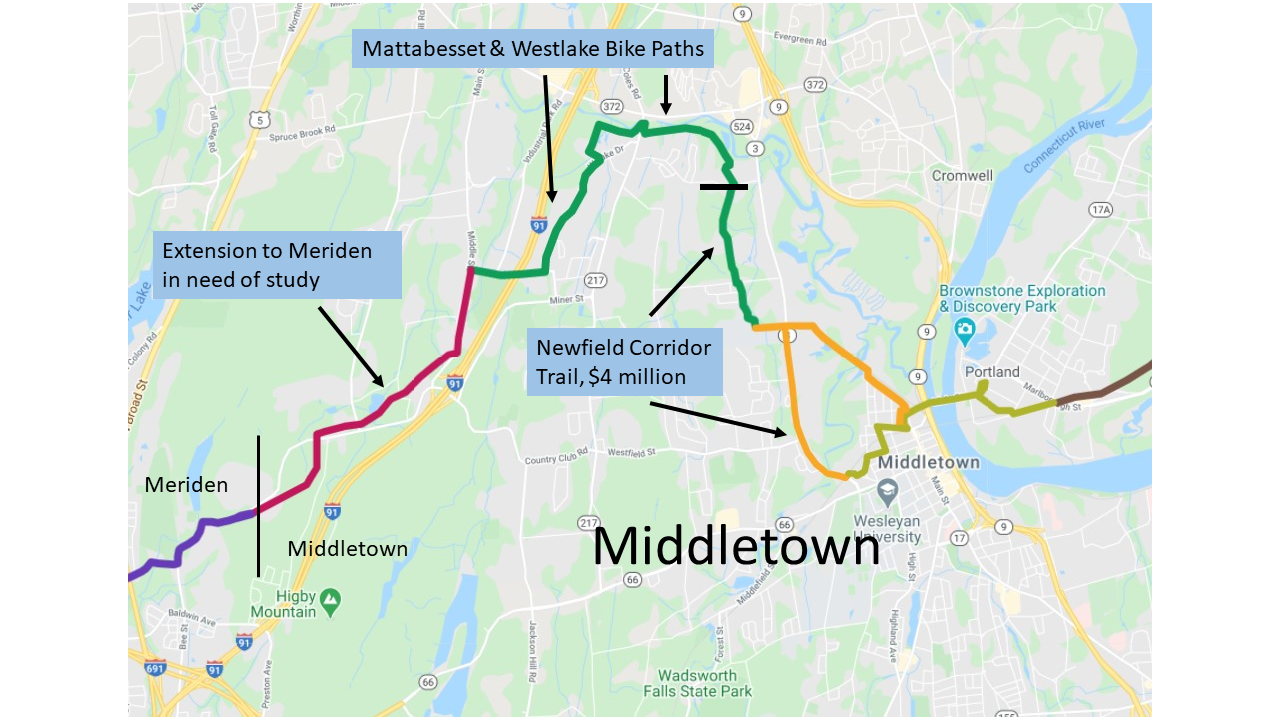 The Jonah Center’s most far-reaching project — to connect the 2 longest multi-use trails in Connecticut — has been awarded 3 grants: a $315,000 route study grant by CT DOT in February 2022; a $500,000 grant by the state bond commission in April 2022; and a $2 million grant by the bond commission in October 2023. We thank Senator Matt Lesser whose leadership and advocacy has enabled this progress and funding. (Please note that none of these funds pass through or benefit the Jonah Center.) These grants will allow the project to proceed from route study (which is now underway) to design and construction work. The most recent $2 million grant is intended to be used as state & local matching funds for $8 million in federal transportation funds to be applied for in the future. In short, we are well on our way to making the connector route a reality. Continue reading
The Jonah Center’s most far-reaching project — to connect the 2 longest multi-use trails in Connecticut — has been awarded 3 grants: a $315,000 route study grant by CT DOT in February 2022; a $500,000 grant by the state bond commission in April 2022; and a $2 million grant by the bond commission in October 2023. We thank Senator Matt Lesser whose leadership and advocacy has enabled this progress and funding. (Please note that none of these funds pass through or benefit the Jonah Center.) These grants will allow the project to proceed from route study (which is now underway) to design and construction work. The most recent $2 million grant is intended to be used as state & local matching funds for $8 million in federal transportation funds to be applied for in the future. In short, we are well on our way to making the connector route a reality. Continue reading
Category Archives: News
Outside Art — Some Favorites
“Romeo and Juliet” by Steve Tobin, seen on exhibit at the Coastal Maine Botanical Gardens in Boothbay, Maine, in 2019. (Artist’s comment: “Cast bronze tree roots from two trees that fell and entwined in death.”) Other works of Steve Tobin may be viewed here.
Newfield Corridor Trail Options Being Explored
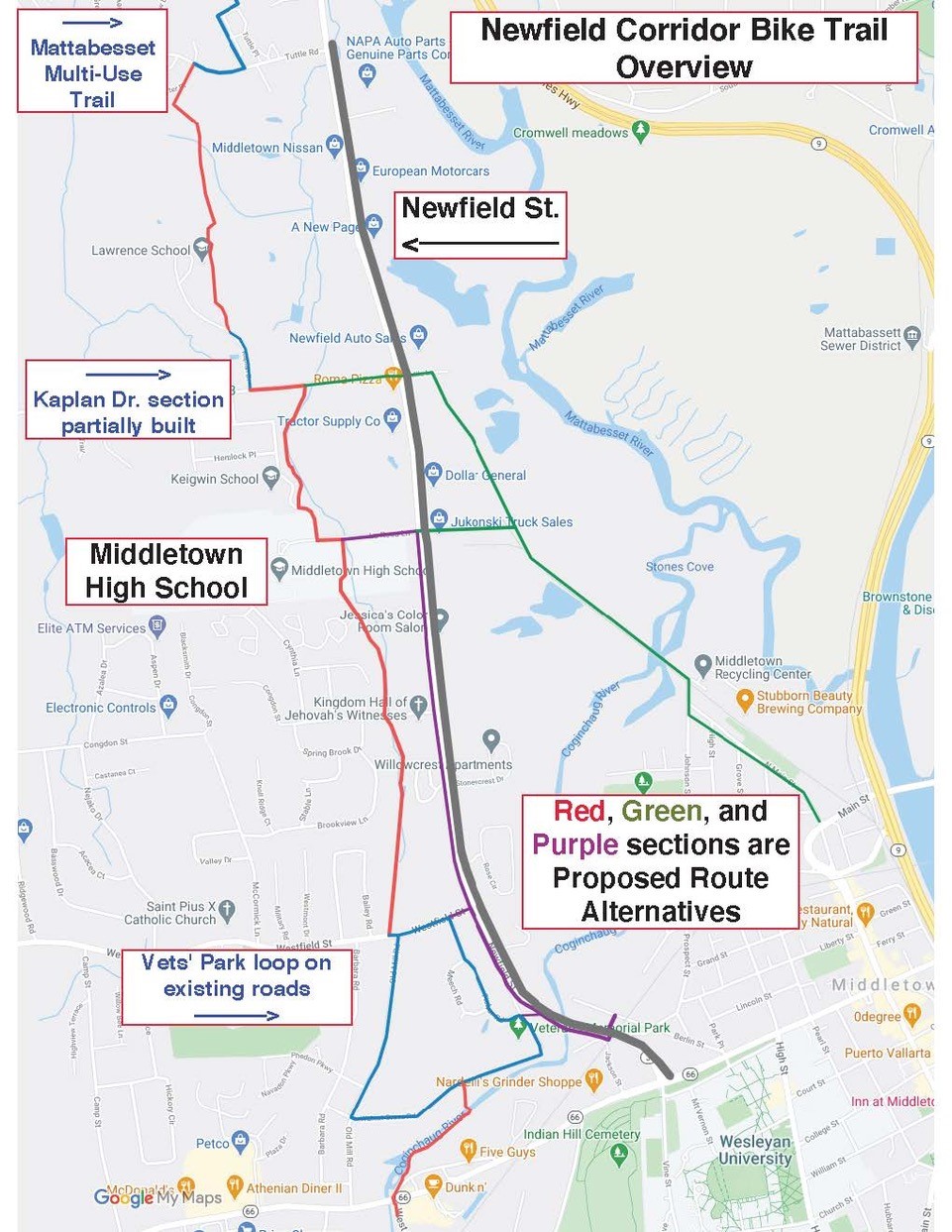 A study to determine the best route for the Newfield Corridor Trail is underway. Design and construction of the trail was funded by the 2015 Parks Bond, and assigned a budget of $4 million. This multi-use bikeway will be an extension of the Mattabesset Bike Trail southward from Tuttle Road to Veterans Park. (To access a Google Map of the Newfield Corridor Trail options that you can zoom in on to see details, click here.)
A study to determine the best route for the Newfield Corridor Trail is underway. Design and construction of the trail was funded by the 2015 Parks Bond, and assigned a budget of $4 million. This multi-use bikeway will be an extension of the Mattabesset Bike Trail southward from Tuttle Road to Veterans Park. (To access a Google Map of the Newfield Corridor Trail options that you can zoom in on to see details, click here.)
Pecausett Pond Mega-Pull
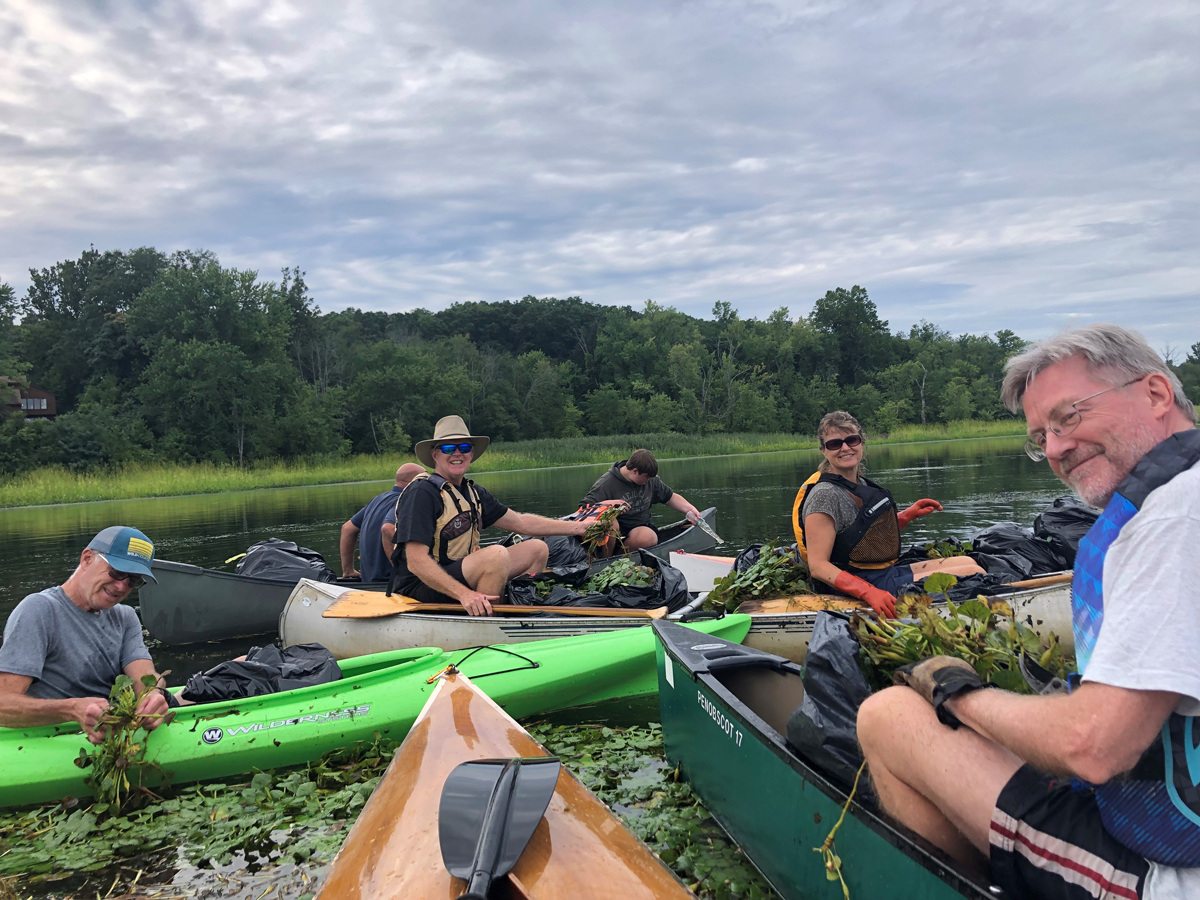
Photo credit, Anne-Marie Cannata McEwen
In spite of a heavy downpour that ended just 30 minutes before the scheduled launch time of 5 p.m. on August 17, 41 paddlers showed up to save Pecausett Pond in Portland from a serious infestation of water chestnut. Our goal was to remove several large, dense patches and many isolated plants before their nuts dropped. Water chestnut (Trapa natans) is an aquatic invasive plant imported from Asia in the 1880s. Once established, the plants can cover freshwater ponds and river coves, cutting off sunlight and oxygen that fish require. Continue reading
Make Your Home More Energy Efficient
 Energy prices are rising, as our readers have probably noticed. The Jonah Center urges our readers to take advantage of the State’s Home Energy Solutions (HES) program, and other low-cost, high-return opportunities to make your home more comfortable and energy efficient. This program, subsidized by the Connecticut Energy Efficiency Fund, reduces home utility costs, on average, by $200 per year. The co-pay for HES is $50, and $0 for income-eligible residents (up to 60% of the state’s median income level). Your home will have air leaks sealed, energy-efficient light bulbs and shower heads installed, and insulation evaluated. Those who take advantage of HES services will learn about low cost, subsidized insulation options. Visit EnergizeCT or call 877-947-3873 to get started.
Energy prices are rising, as our readers have probably noticed. The Jonah Center urges our readers to take advantage of the State’s Home Energy Solutions (HES) program, and other low-cost, high-return opportunities to make your home more comfortable and energy efficient. This program, subsidized by the Connecticut Energy Efficiency Fund, reduces home utility costs, on average, by $200 per year. The co-pay for HES is $50, and $0 for income-eligible residents (up to 60% of the state’s median income level). Your home will have air leaks sealed, energy-efficient light bulbs and shower heads installed, and insulation evaluated. Those who take advantage of HES services will learn about low cost, subsidized insulation options. Visit EnergizeCT or call 877-947-3873 to get started.
Who’s Walking In Portland
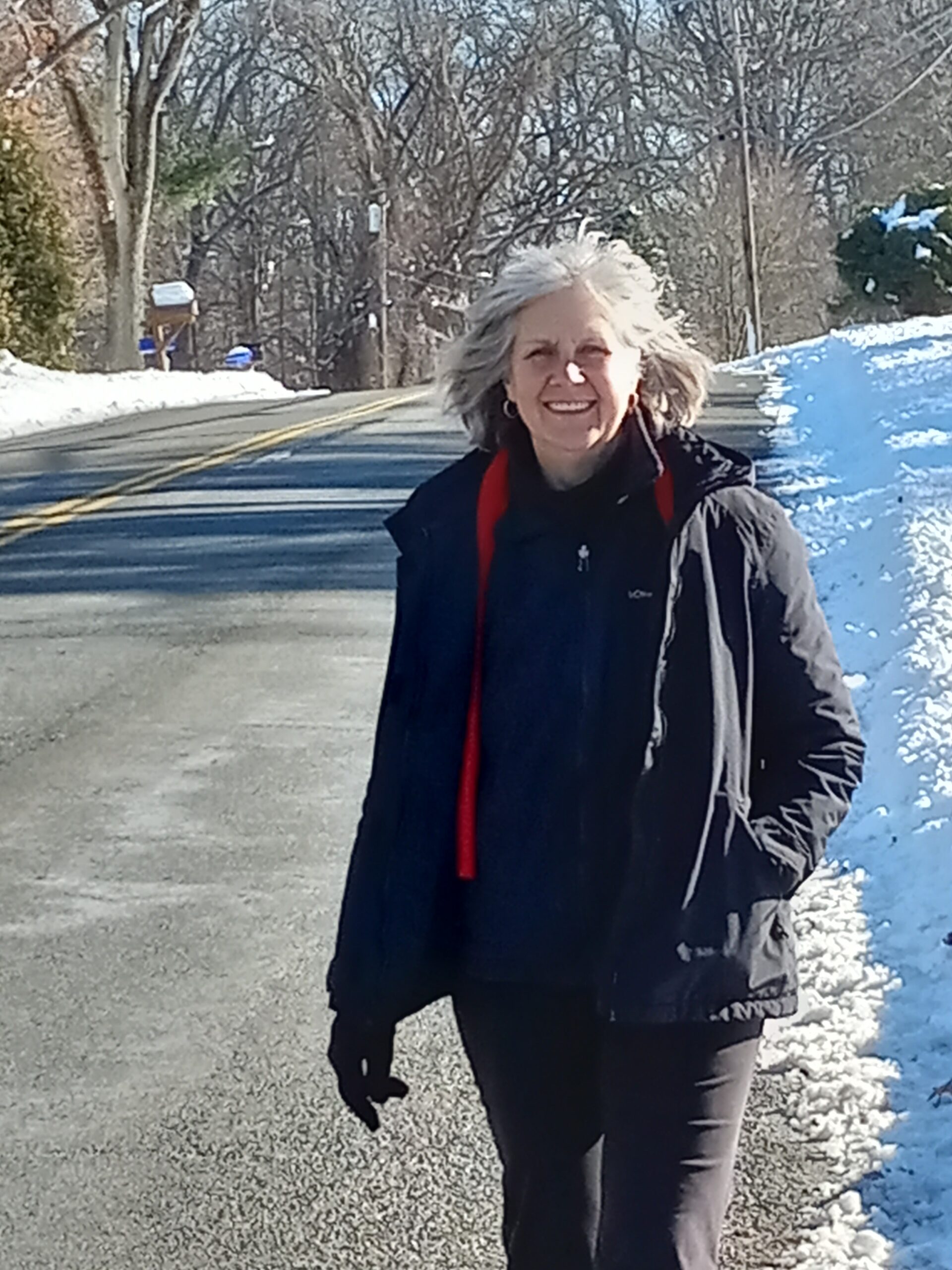 To promote healthy activities like walking and bicycling, Portland’s Complete Streets Group and the Jonah Center celebrate those who serve as an example for others. Monica Jensen, a recently retired nurse, walks 4-5 miles a day, usually early in the morning, through her neighborhood, past the town schools and community centers such as the library. Sometimes she takes her granddaughter’s service dog, Liberty, out to the Riverfront Park.
To promote healthy activities like walking and bicycling, Portland’s Complete Streets Group and the Jonah Center celebrate those who serve as an example for others. Monica Jensen, a recently retired nurse, walks 4-5 miles a day, usually early in the morning, through her neighborhood, past the town schools and community centers such as the library. Sometimes she takes her granddaughter’s service dog, Liberty, out to the Riverfront Park.
As an RN who managed programs to prevent diabetes, heart disease, and strokes, Monica said, “The health benefits of walking and biking motivate me, but I’m also inspired by my mom, aunts, and uncles who have stayed active and thrive into their 80s and 90s. My grandchildren inspire me, too. I want to be able to sled, bike, play with them, and someday dance at their weddings. Continue reading
Tree Fund Gift Supports Spring Tree Planting
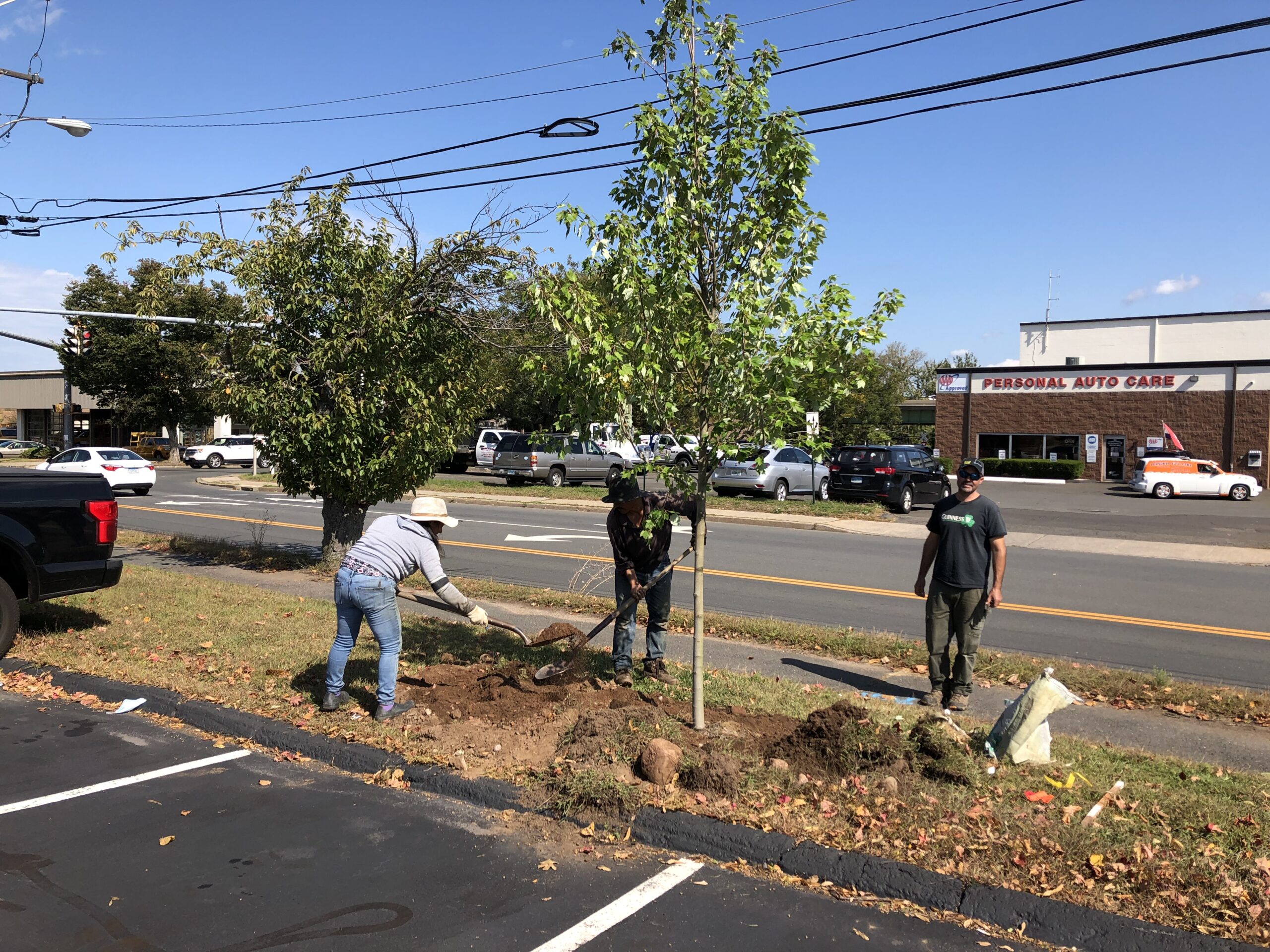
Middletown’s Public Works Department and Urban Forestry Commission will soon be planting more trees, with support of the Jonah Center’s Tree Fund. In the coming weeks, you will see water bags on the trees planted last fall along Church Street near the Traverse Square apartments (with cost sharing by the Middletown Housing Authority) and along 3 sides of the YMCA. These 22 new trees added to the approximately 130 trees planted by the Urban Forestry program, funded by the city budget.
 Recently, the Jonah Center Tree Fund received an unsolicited $500 donation from the Community Foundation of Middlesex County/Sally Ann McGee D’Aquila & Salvatore D’Aquila, Jr. Fund. We hope this timely example will inspire others to support the Jonah Center’s ongoing Replace Our Trees program. Gifts received will continue to supplement plantings by the Urban Forestry Commission in Middletown. In the past decade or so, Middletown has lost over 100 trees per year, and that is just counting the trees on city property.
Recently, the Jonah Center Tree Fund received an unsolicited $500 donation from the Community Foundation of Middlesex County/Sally Ann McGee D’Aquila & Salvatore D’Aquila, Jr. Fund. We hope this timely example will inspire others to support the Jonah Center’s ongoing Replace Our Trees program. Gifts received will continue to supplement plantings by the Urban Forestry Commission in Middletown. In the past decade or so, Middletown has lost over 100 trees per year, and that is just counting the trees on city property.
Even though the city’s tree maintenance budget was dramatically increased last year, those funds are strained by the need to catch up on the large number of tree removals that are required for public safety, often at a cost of over $1000 per tree. The Jonah Center’s Tree Fund is a way that local residents can help stop the rapid disappearance of trees from the urban landscape due to age, climate change, and pests. Arborist Jane Harris chooses species for new trees that promise to be more resilient and resistant to such threats. Food and habitat for wildlife, the need to avoid too many trees of a single species in a given location, and a species’ ability to withstand urban conditions such as road salt and root confinement are also considered in these decisions.
To assist in the effort, you may donate by check payable to The Jonah Center, PO Box 854, Middletown 06457 or by credit card/PayPal here. Indicate “Tree Fund” in the memo line or using the online donation form.
In Portland, the Jonah Center is still seeking permission and planting sites for new trees after a disappointing season in 2020, when we obtained permission to plant only 3 trees, and those were on private property. We are looking for sites in or near the town center area where trees will improve a streetscape, shade a sidewalk or other pavement to mitigate “heat islands” in summer, and where the property owner or tenant can take responsibility for watering. If you know of such a site, send us a message here.
NRG Raises the White Flag on Power Plant Expansion
A resolution to terminate the tax agreement between the City of Middletown and NRG, owner of the power plant on River Road, will be tabled at the Council meeting on April 5. It appears that NRG is waving the white flag and has requested a one-month delay of Council action in order to terminate the tax agreement by mutual consent with the City.
Pending such a mutual consent agreement, that will presumably be ratified at the May 3 Council meeting, below are the details of the tax agreement for reader information.
So, public testimony at the April 5 meeting will not be needed, though it will be allowed as the item remains on the agenda.
Many thanks to all who participated in and supported our campaign.
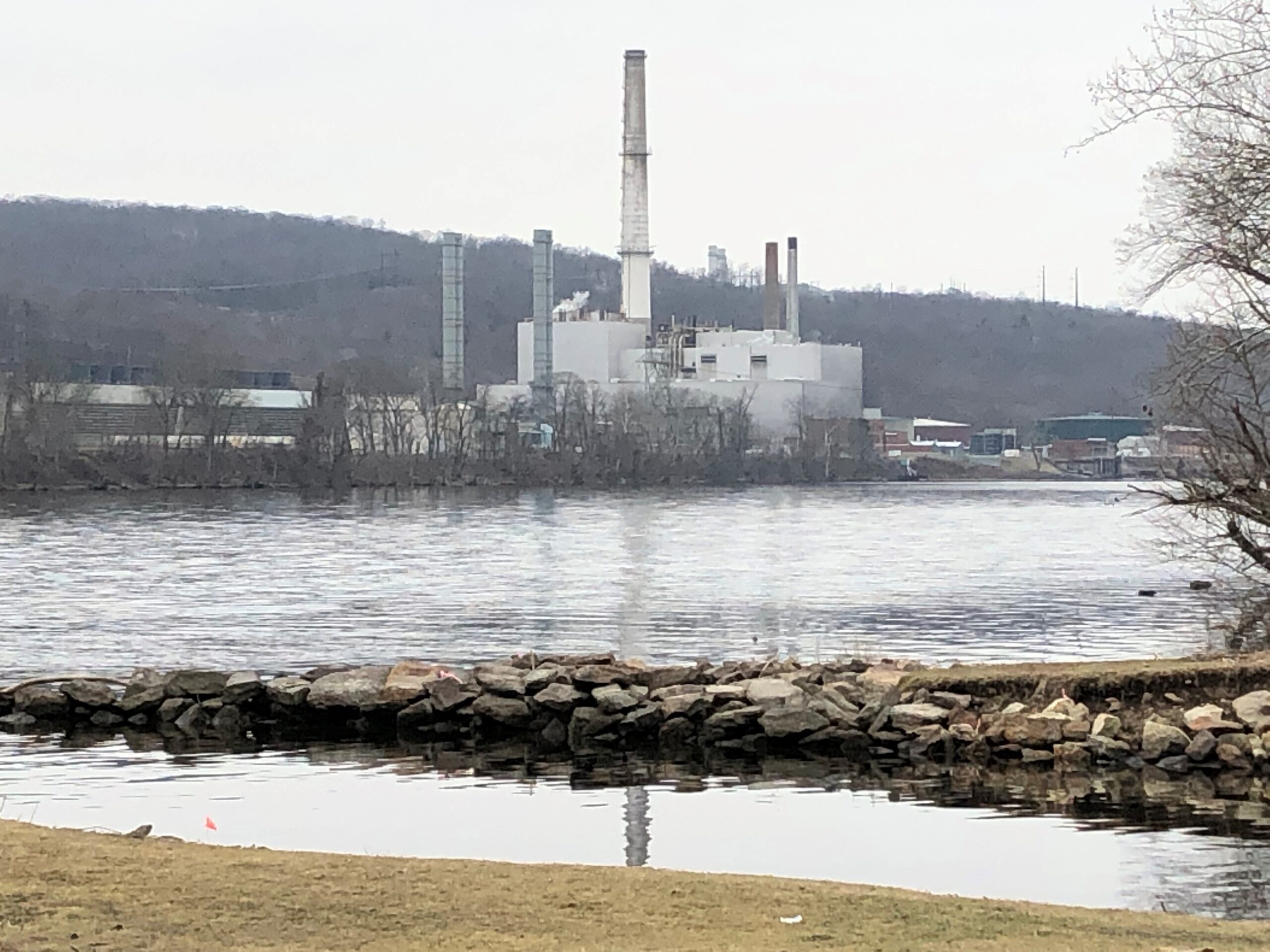
NRG Middletown Power Plant — site of proposed new 375 MW generator
The tax agreement with NRG is unfavorable to Middletown. Until the proposed turbine is built and becomes operational— something that could not possibly happen before 2024, at the earliest—property taxes paid to the city are frozen at the 2019 level of $1.78 million per year. The city is losing over $200,000 per year in taxes while the agreement remains in effect for a project that is not getting built anytime soon.
But it the proposed turbine should ever be built — an increasingly unlikely outcome, due to market conditions — the tax agreement represents an unconscionable giveaway to NRG. Why would Middletown give a tax break to a company that is going to pollute our air more and stand in the way of meeting the state’s climate goals?
What would the actual tax revenue from the project be?
Under the terms of the agreement, taxes paid to the city would depend on the “forward capacity market price” for each year. You don’t need to understand what that means. Simply stated, the taxes paid to the city each year would vary between $2.36 million to $3.41 million per year, but would most likely be at the lower end of that range. Over a 25-year period, the total paid to the city would be somewhere between a minimum of $59 million and a maximum of $85.25 million. Assuming the forward capacity market rises over the next five years and NRG or its successor built the plant, we estimate total tax revenue over 25 years of no more than $65 million — and that’s being optimistic and contrary to current trends and predicted future trends in the capacity market.
But with no tax agreement, the taxes paid would depend on different factors — namely, the rate of depreciation assigned by the assessor’s office and the tax mill rate for each year. Assume for our purpose here a constant mill rate of .0358 for 25 years. The depreciation could be 75% of initial value over 25 years, or it could be an accelerated depreciation of 75% of initial value over 17 years. So, without this tax agreement, the total taxes received by the city over 25 years would be between $82.5 million and $123 million.
Summary — Financial impact of the Tax Agreement.
Prior to turbine operation: $200,000 tax loss per year
After turbine operation: $700,000 – $2.3 million tax loss per year (depending on depreciated rate applied by the assessor’s office.)
Let the Common Council know you support termination of the tax agreement with NRG
Email all Common Council members here council@middletownct.gov
For more details on the tax agreement and the calculations cited above, read more below: Continue reading
Update on Proposed New Boathouse
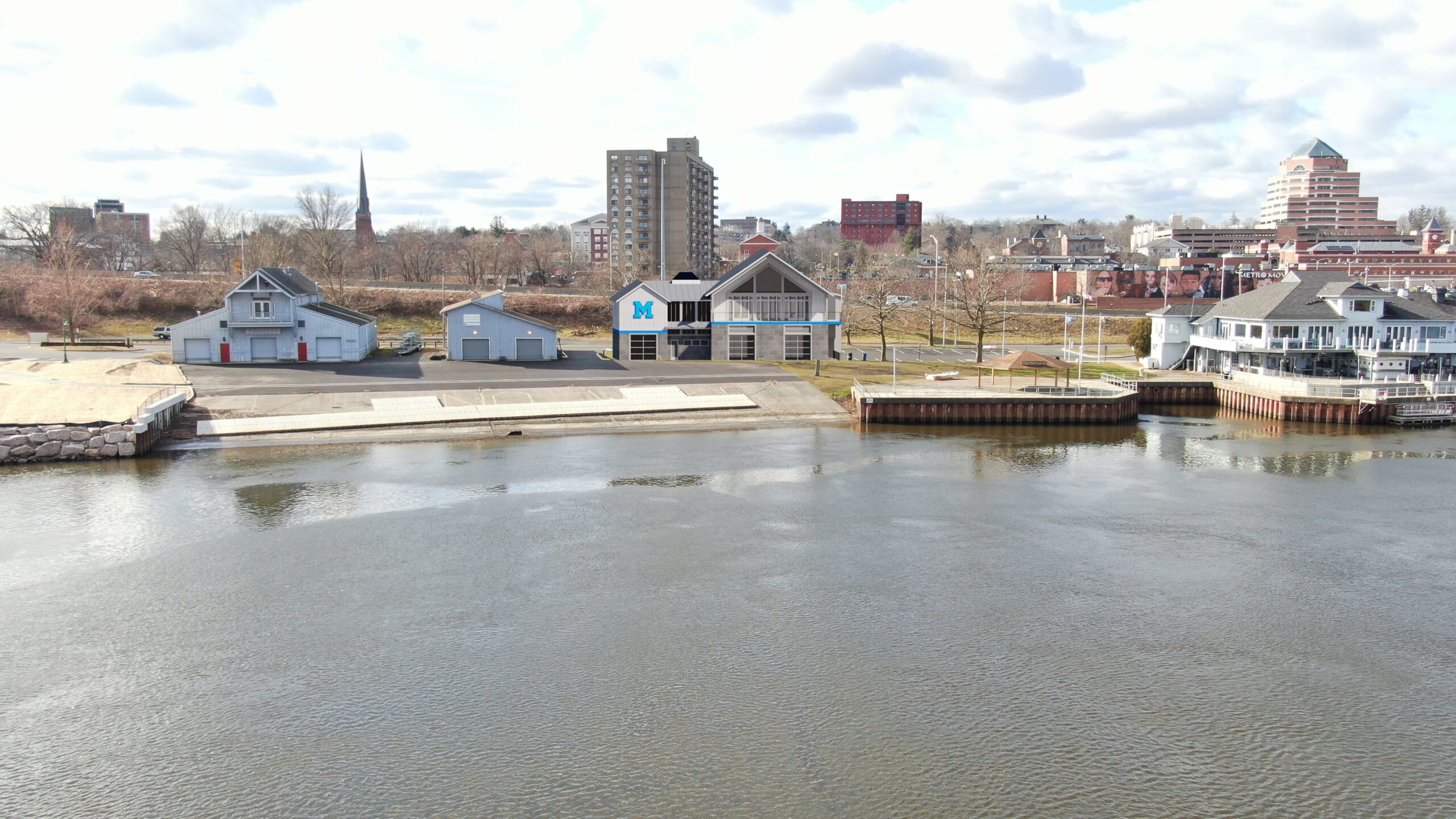 Plans for a new boathouse on Middletown’s riverfront are progressing. DiBattisto Associates LLC and Christina Wasch, Associate AIA, recently presented renderings (shown above) of a proposed new Middletown High School boathouse at the March meeting of the city’s Economic Development Commission. (Right click on the image to open and enlarge it in a new tab.)
Plans for a new boathouse on Middletown’s riverfront are progressing. DiBattisto Associates LLC and Christina Wasch, Associate AIA, recently presented renderings (shown above) of a proposed new Middletown High School boathouse at the March meeting of the city’s Economic Development Commission. (Right click on the image to open and enlarge it in a new tab.)
The Boathouse Building Committee has recommended the least expensive option of the three it originally considered. This proposal retains the Wesleyan boathouse (left) and the current Middletown High School boathouse (center) which would be refurbished for the community rowing program. The additional proposed building (right) would serve the MHS rowing program that has been so successful in recent years.
The next step is for the professional design team to present a quote to develop the plans more fully — to approximately 40% of what would be needed for construction.
Shown below is an aerial rendering of the proposed new building’s footprint (in white) next to the existing boathouses. To the far right is the restaurant located in Harbor Park. To the far left is the area know as Columbus Point, bordered by Sumner Brook.
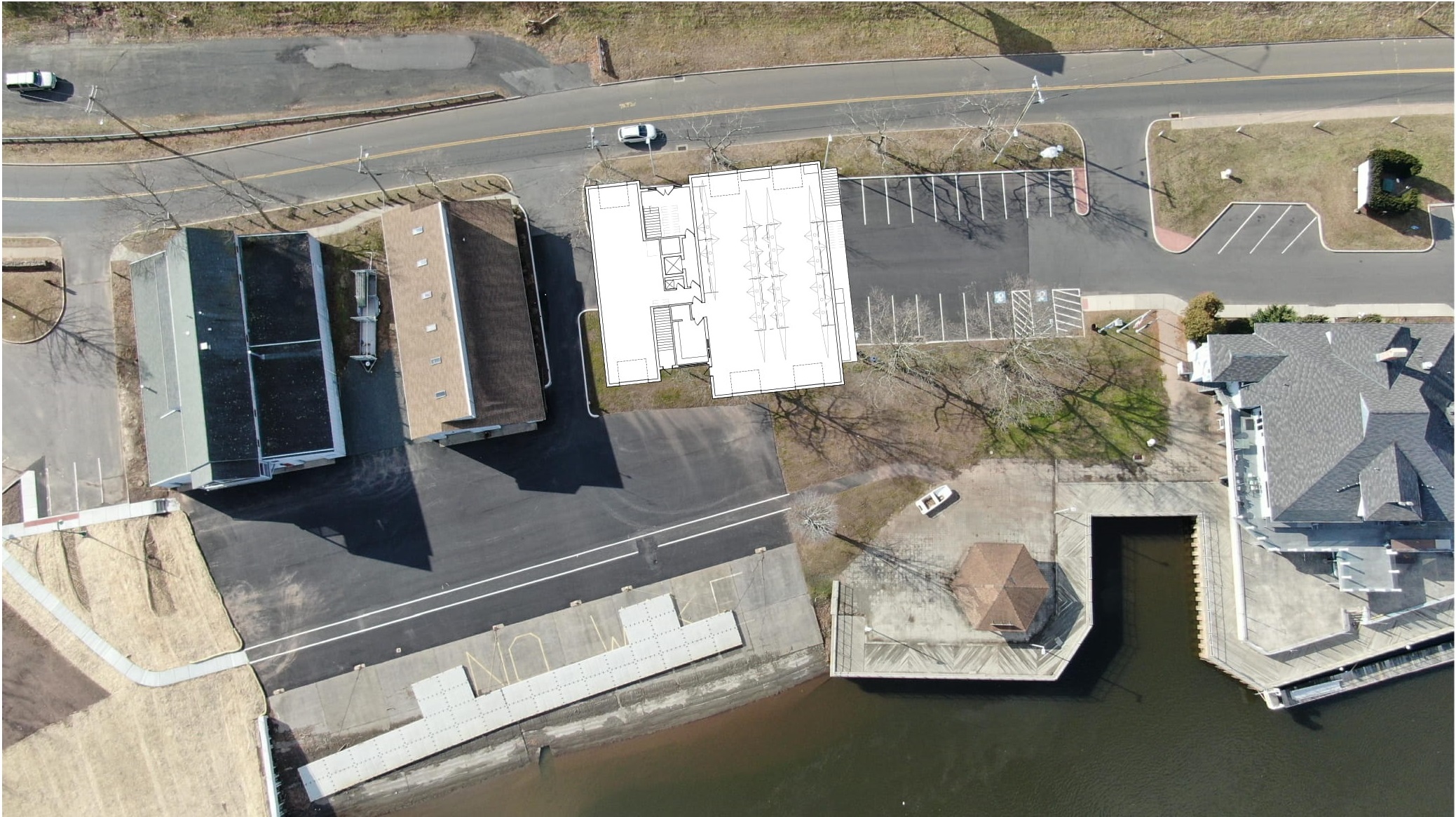
NRG Power Plant Update
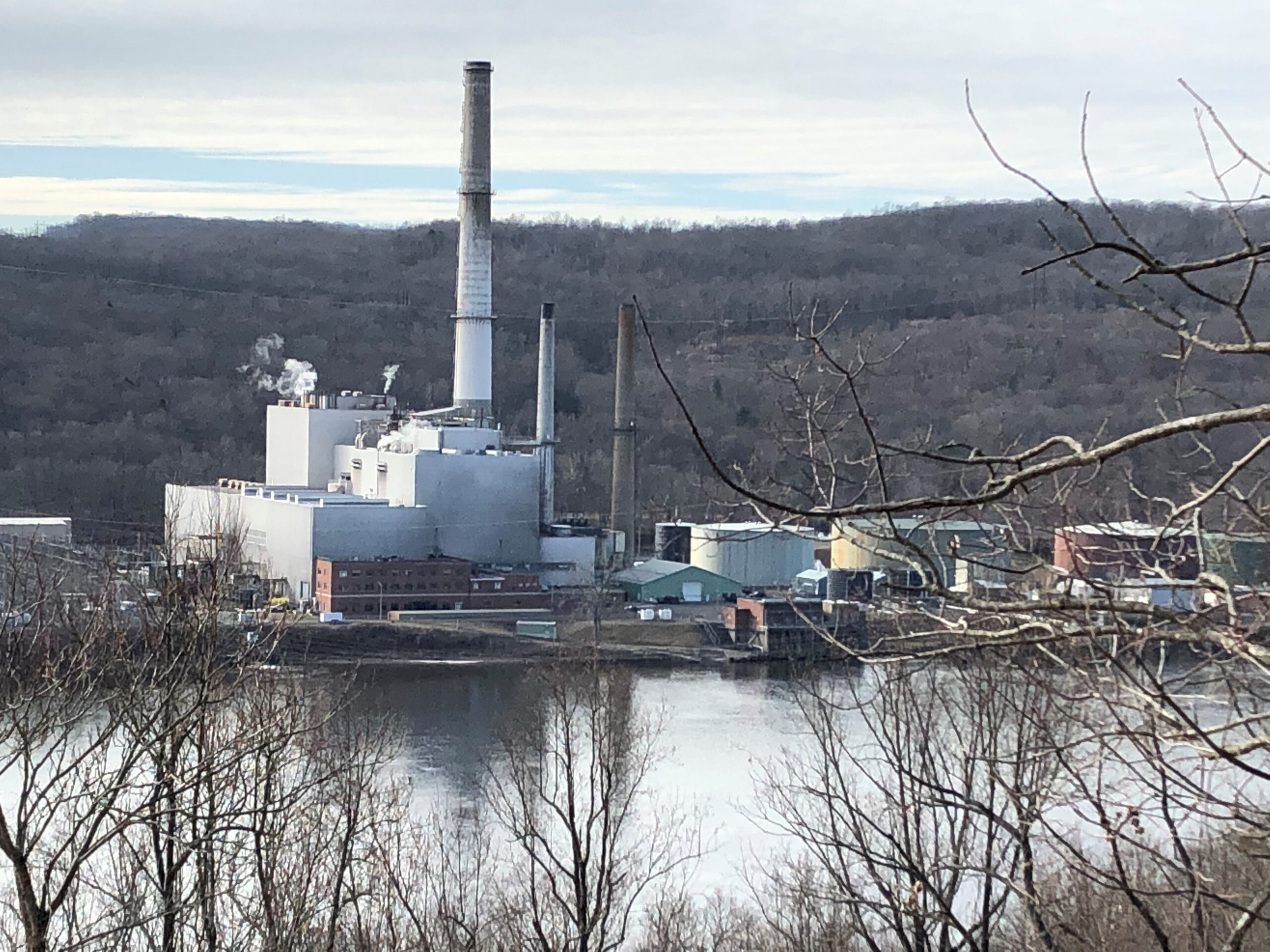
NRG power plant in Middletown as seen from the Air Line Trail in Portland. Photo by John Hall
The Jonah Center’s campaign to resist the installation of a new combustion turbine at the NRG power plant at 1866 River Road appears to be making an impact. Middletown’s Economic Development Commission (EDC), at its meeting on March 9, voted unanimously to recommend that the tax agreement with NRG be terminated. A resolution to that effect is expected to be on the agenda of the Common Council on April 5. The tax agreement pertains primarily to the property taxes that would be due after such a new turbine becomes operational. But, in the meantime, the agreement freezes property taxes on the existing plant at the amount due in 2019. So the city loses revenue each year the agreement is allowed to stand. Continue reading
Complete Streets News — Portland, Durham, Meriden, & Middletown
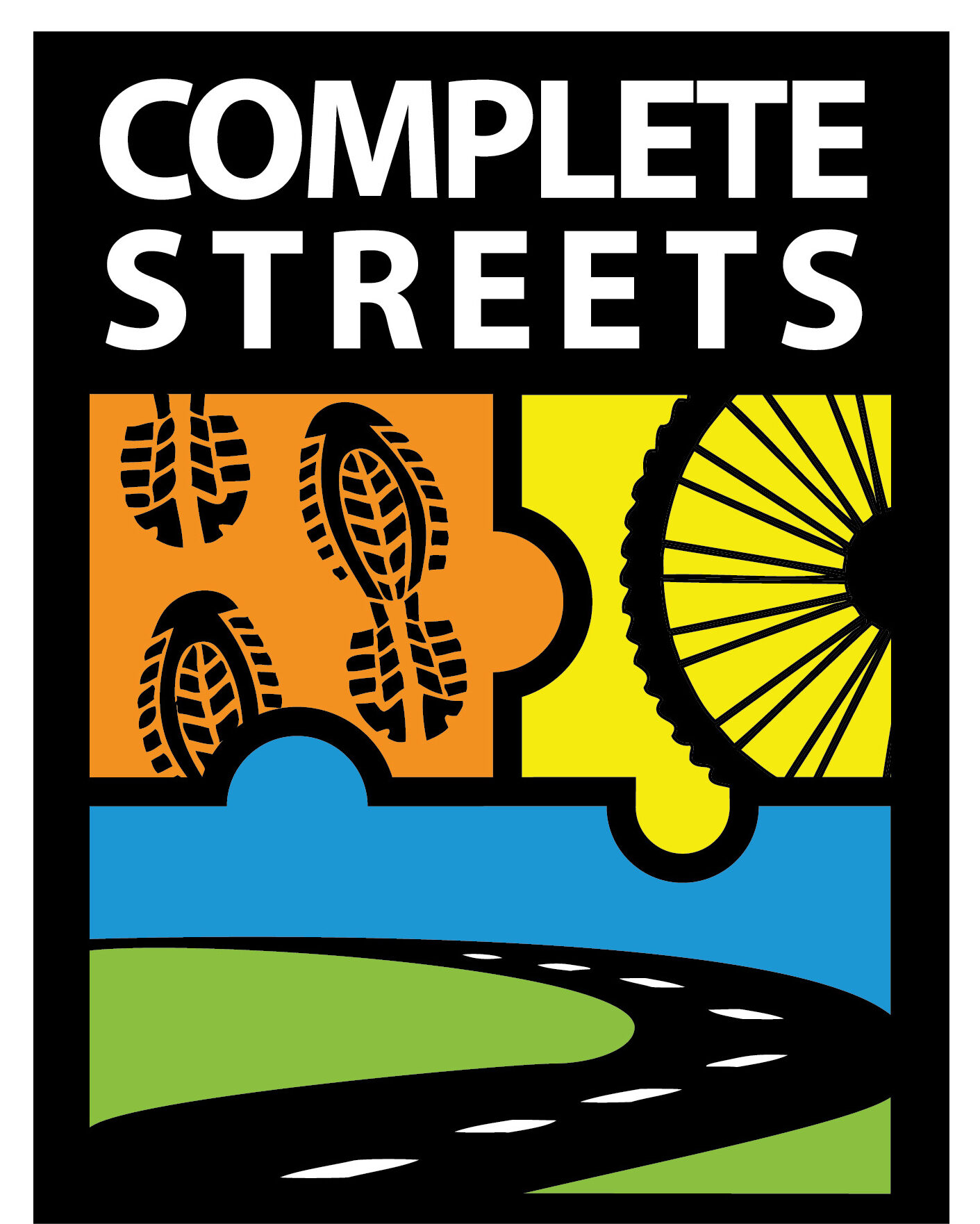 The grassroots activism to make our streets safer and more comfortable for walkers, bicyclists, wheelchair users, and users of public transit is the “complete streets” movement. Middletown, Portland, and Durham have Complete Streets groups working with their respective towns to achieve improvements that make our streets complete in that sense – suitable for all users.
The grassroots activism to make our streets safer and more comfortable for walkers, bicyclists, wheelchair users, and users of public transit is the “complete streets” movement. Middletown, Portland, and Durham have Complete Streets groups working with their respective towns to achieve improvements that make our streets complete in that sense – suitable for all users.
Streets, after all, are by far the largest public spaces. They should not be just for moving motor vehicles, but for active transportation (meaning, by muscle power) and community gathering. When people are walking, they meet, speak, and achieve a sense of belonging. Here are some exciting news items. Continue reading
Citizen Testimony Was Fantastic at Common Council Workshop
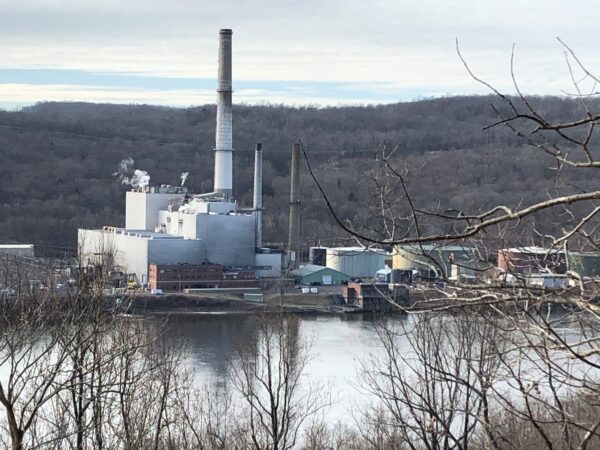
NRG power plant in Middletown as seen from the Air Line Trail in Portland. Photo by John Hall.
Middletown’s Common Council held a public workshop on the NRG plant on Thursday, February 11, on WebEx. Citizens joined the meeting in large numbers, most speaking in strong opposition to the proposed new 375 megawatt combustion turbine generator at the NRG Middletown power plant at 1866 River Road. We wish to thank everyone who attended and spoke. It made a big difference!
The recording of the presentations, public comment, and Common Council members questions can be viewed here.
The new turbine would replace 2 old turbines which, due to their inefficiency, outdated technology, and high emissions per megawatt hour of electricity produced, are permitted to run only a few days per year during time of peak demand. (Peak demand occurs mainly in summer during heatwaves.) Because of the new turbine’s greater efficiency, NRG requested an emissions permit that would allow it to run many more hours in the year, resulting in higher total emissions of CO2, Nitrogen Oxides (NOx), Sulphur dioxide (SO2), and soot (particulate matter).














